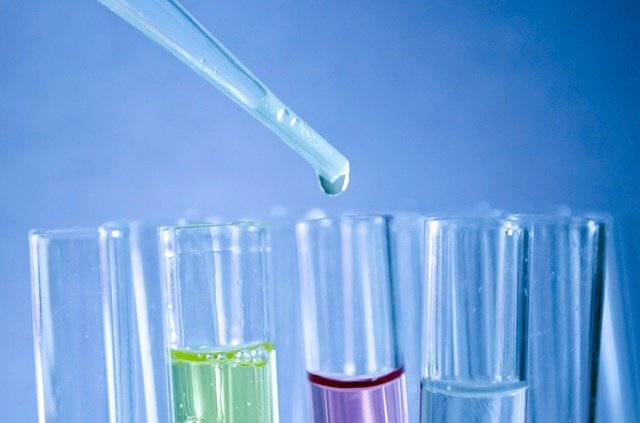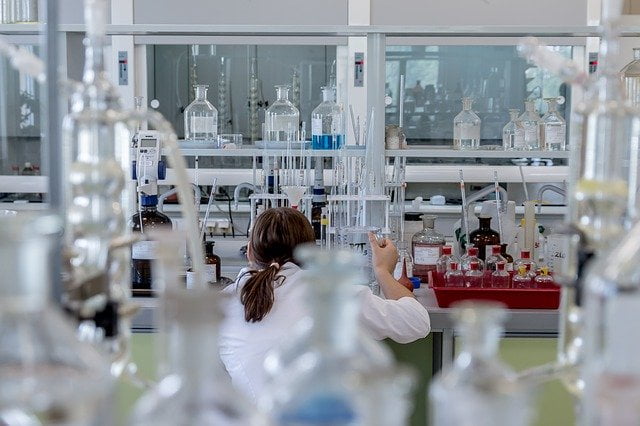Laboratory glassware and the advanced equipment found everywhere in today's labs performs are largely unsung assets. They hold a crucial enabling function for the progress of science, and science education.
Read on to find out how. Why? It's all explained in this article, plus some great tips for working with glassware in labs.
As most of the topics in the science field demand proof and calibration, the requirement for a well-equipped lab is growing on a daily basis. Also, laboratory glassware suppliers are doing a fantastic job by offering sufficient and top quality supplies to the colleges and schools.

Working with Glassware in Labs
1 – Safety First
When you work with glassware in a lab, it is essential to remember its restrictions that are associated with mechanical stress and thermal shock. Make sure to take strict safety measures all the time.
Professionals at https://www.scientificglassservices.co.uk/ suggest when producing an exothermic reaction like when you dilute sulphuric acid, ensure you mix and cool it well, and that the reaction takes place in an appropriate vessel. Avoid utilizing volumetric flasks and graduated cylinders for exothermic reactions. Never heat the volumetric apparatus on heating plates as you will increase the risk of breakage.
2 – Never Underestimate the Valuable Role of Laboratory Glassware
These tools not only facilitate precise experiments but also ensure the integrity and accuracy of results that drive progress in various scientific fields.
Understanding the significance of these instruments and mastering their use is crucial for any laboratory professional. This article delves into the essential functions of laboratory glassware and advanced equipment, highlights their pivotal role in modern science, and offers practical tips for effectively working with glassware in laboratory settings.
The Role of Laboratory Glassware in Scientific Research
Laboratory glassware forms the backbone of countless scientific experiments. From simple beakers and flasks to intricate apparatuses like burettes and condensers, glassware is fundamental in conducting, observing, and measuring chemical reactions and processes.
 In the current market, you can find various kinds of instruments and equipment to use, yet most essential is given to the tool that is crafted from supercooled glass or liquid. Glassware of different sizes and shapes is seen in labs everywhere. From vacuum manifolds to lab flasks and sampling tubes, you can find a diverse range for your use depending on the purpose. For instance, quartz glass is resistant to high temperatures and translucent in particular areas of the electromagnetic spectrum. Heavy-wall glasses are particularly strengthened to be utilized in pressurized experiments, while the amber glass is darkened to stop UV and infrared radiation, hence making it perfect for storing fluids.
In the current market, you can find various kinds of instruments and equipment to use, yet most essential is given to the tool that is crafted from supercooled glass or liquid. Glassware of different sizes and shapes is seen in labs everywhere. From vacuum manifolds to lab flasks and sampling tubes, you can find a diverse range for your use depending on the purpose. For instance, quartz glass is resistant to high temperatures and translucent in particular areas of the electromagnetic spectrum. Heavy-wall glasses are particularly strengthened to be utilized in pressurized experiments, while the amber glass is darkened to stop UV and infrared radiation, hence making it perfect for storing fluids.
With such a substantial variety of glassware in the workplace and great precision needed in every experiment, it is vital that the tool is kept in high-quality condition. Still, there are many people who opt for a low quality and less environmentally friendly plastic substitute. Nevertheless, various substances and experiments depend on glassware, and hence it still plays a crucial role.
Types of Laboratory Glassware
Understanding the various types of laboratory glassware is essential for selecting the right tool for each experiment. Here are some common types:
- Beakers: Simple containers used for stirring, mixing, and heating liquids.
- Flasks: Including Erlenmeyer flasks and volumetric flasks, used for mixing, heating, and precise measurements.
- Graduated Cylinders: Designed for accurate measurement of liquid volumes.
- Pipettes: Used to transport a measured volume of liquid, crucial for precise experiments.
- Tongs and Clamps: Essential for handling hot equipment and maintaining setups.
Importance in Experiments and Reactions
Laboratory glassware is not just about holding substances; it's about creating an environment where reactions can occur under controlled conditions. For instance:
- Controlled Heating: Glass beakers and flasks can withstand high temperatures, allowing for reactions that require heating without contamination.
- Accurate Measurements: Volumetric glassware ensures that quantities of reactants are precise, which is critical for reproducible results.
- Safety: Proper glassware design minimizes the risk of spills, breakages, and exposure to hazardous substances.
Advanced Equipment in Modern Laboratories
While glassware lays the foundation, advanced laboratory equipment elevates the capabilities of modern science, enabling complex analyses and high-precision experiments.
Types of Advanced Equipment
Modern laboratories are equipped with a variety of advanced instruments, each serving specific functions:
- Spectrophotometers: Measure the intensity of light in a part of the spectrum, essential for identifying and quantifying substances.
- Chromatographs: Used for separating mixtures into their component parts, crucial in fields like pharmacology and environmental science.
- Microscopes: Advanced models, including electron microscopes, provide detailed images of small structures.
- Autoclaves: Sterilize equipment and materials, ensuring safety and preventing contamination.
- Centrifuges: Separate components in a mixture based on density, widely used in biological and chemical laboratories.
Enhancing Precision and Efficiency
Advanced equipment enhances laboratory capabilities by:
- Increasing Accuracy: Instruments like analytical balances and pH meters provide precise measurements essential for reliable data.
- Improving Efficiency: Automated systems and robotics streamline repetitive tasks, allowing scientists to focus on analysis and innovation.
- Facilitating Complex Analyses: High-throughput sequencers and mass spectrometers enable the study of intricate biological and chemical processes.
Image: Modern laboratory equipped with advanced scientific instruments.
Integration of Glassware and Advanced Equipment
The seamless integration of laboratory glassware with advanced equipment creates a synergistic environment where experiments can be conducted with maximum efficiency and reliability.
Synergy in Scientific Processes
Combining glassware with advanced instruments allows for sophisticated experimental designs. For example:
- Titration Systems: Automated titrators equipped with burettes ensure precise delivery of reagents, while software controls the process and records data accurately.
- Analytical Labs: Glassware vessels are often connected to spectrophotometers or chromatographs, enabling real-time analysis of reactions and mixtures.
Case Studies and Examples
- Pharmaceutical Research: Advanced equipment like high-performance liquid chromatographs (HPLCs) are used alongside glassware for drug formulation and testing, ensuring the purity and efficacy of medications.
- Environmental Monitoring: Gas chromatographs coupled with specialized glass apparatuses analyze air and water samples for pollutants, providing essential data for environmental protection initiatives.
Best Practices for Working with Laboratory Glassware
Proper handling and maintenance of laboratory glassware are paramount to ensure safety, accuracy, and prolong the lifespan of the equipment.
Handling and Safety Tips
- Wear Protective Gear: Always use gloves, goggles, and lab coats to protect against chemical spills and breakages.
- Proper Holding Techniques: Use clamps and stands to hold glassware when heating or mixing substances to prevent accidents.
- Avoid Thermal Shock: Gradually heat or cool glassware to prevent cracking or shattering. Never pour cold liquids into hot glassware suddenly.
- Inspect Before Use: Check for cracks, chips, or other defects that could lead to failure during experiments.
Cleaning and Maintenance
- Immediate Cleaning: Rinse glassware immediately after use to prevent residue from hardening, which can make cleaning more difficult.
- Use Appropriate Cleaning Agents: Employ detergents and solvents suitable for the types of substances previously contained in the glassware.
- Drying Techniques: Allow glassware to air dry on clean drying racks or use lint-free cloths to prevent contamination.
- Regular Inspections: Periodically inspect glassware for wear and tear, replacing any items that show signs of damage.
 Image: Scientist handling glassware using appropriate clamps and safety gear.
Image: Scientist handling glassware using appropriate clamps and safety gear.
Choose Glassware Over Plastic Equipment

Glass is one of the materials constantly favored over plastic for two main reasons; it’s better for you and for the environment. It is considered an excellent replacement for plastics because glass is comparatively inert which means it will not have any reaction to the chemicals or substances poured inside. They are easy to clean and maintain if you know the right way. It is transparent, giving you easy monitoring and heat-resistance, allowing for high temperatures whereas plastics leach chemicals.
Moreover, glass can be molded into different shapes and sizes by cutting, bending, blowing and framing. Due to its breakage potential, most labs ensure to train first-time staff or students to use glassware correctly and about the possible danger that comes with working with glass items.
Tips for Working with Glassware in Labs
Maximizing the efficiency and safety of glassware usage involves adhering to best practices and leveraging techniques that enhance experimental outcomes.
Optimize Workspace Organization
- Designate Specific Areas: Allocate separate zones for storage, preparation, and experimentation to maintain order and reduce contamination risks.
- Label and Catalog: Clearly label all glassware and maintain an inventory to easily locate and track equipment.
Utilize Appropriate Storage Solutions
- Protect from Damage: Store glassware in padded racks or shelves to prevent chipping and breaking.
- Maintain Cleanliness: Keep storage areas clean and dry to avoid residue buildup and mold growth.
Implement Quality Control Measures
- Calibration and Testing: Regularly calibrate volumetric glassware and test for accuracy to ensure reliable measurements.
- Standard Operating Procedures (SOPs): Develop and follow SOPs for the use, cleaning, and maintenance of glassware to maintain consistency and safety.
Leverage Training and Education
- Comprehensive Training Programs: Provide training for all laboratory personnel on the correct use and handling of glassware and advanced equipment.
- Continuous Learning: Encourage ongoing education to stay updated with the latest techniques and safety protocols.
Advanced Equipment Maintenance for Longevity
Maintaining advanced laboratory equipment is as crucial as handling glassware properly. Proper maintenance ensures that instruments operate at peak performance and extend their usable life.
Routine Maintenance Practices
- Scheduled Servicing: Adhere to manufacturer-recommended maintenance schedules to prevent unexpected breakdowns.
- Regular Calibration: Periodically calibrate instruments like spectrophotometers and balances to ensure measurement accuracy.
- Cleaning Protocols: Follow specific cleaning instructions for each piece of equipment to avoid damage and contamination.
Troubleshooting Common Issues
- Calibration Errors: Recalibrate instruments if discrepancies are noticed in measurements, and check for environmental factors that may affect accuracy.
- Software Updates: Keep software and firmware up to date to ensure compatibility and access to new features or security patches.
- Component Replacement: Replace worn or damaged parts promptly to maintain functionality and prevent further issues.
Documentation and Record-Keeping
- Maintenance Logs: Keep detailed records of all maintenance activities, including dates, procedures performed, and any issues encountered.
- Usage Records: Track the usage of equipment to identify patterns that may indicate wear or potential problems.
The Future of Laboratory Glassware and Advanced Equipment
As scientific research continues to advance, so too do the tools and equipment that support it. The future of laboratory glassware and advanced equipment promises greater precision, automation, and integration with digital technologies.
Innovations on the Horizon
- Smart Glassware: Incorporating sensors and connectivity features into glassware to monitor experimental conditions in real-time.
- Automation and Robotics: Enhanced automation in laboratories reduces human error and increases throughput in high-demand research areas.
- Sustainable Materials: Developing more durable and environmentally friendly glassware to reduce waste and improve sustainability in laboratory practices.
Embracing Digital Integration
- Data Management Systems: Integrating glassware and equipment with digital platforms for streamlined data collection, analysis, and sharing.
- Remote Monitoring and Control: Allowing scientists to monitor and control equipment remotely, facilitating collaborative and flexible research environments.
Image: Conceptual illustration of smart laboratory equipment integrated with digital technologies.
Conclusion
Laboratory glassware and advanced equipment are the unsung heroes of scientific progress. They provide the necessary tools for precise experimentation, ensure the safety and reliability of research, and continue to evolve alongside scientific advancements. By understanding their significance, adhering to best practices, and embracing emerging technologies, laboratory professionals can harness the full potential of these instruments to drive innovation and discovery.
Frequently Asked Questions
1. Why is glass preferred over plastic for laboratory glassware?
Glass is chemically inert, can withstand high temperatures, and is transparent, making it ideal for observing reactions and ensuring no contamination of samples.
2. How often should laboratory glassware be calibrated?
Calibrate volumetric glassware regularly, typically once a year, or more frequently if used extensively, to maintain measurement accuracy.
3. What are the safety protocols for handling broken glassware?
Immediately clean up broken glass using appropriate tools, dispose of shards in designated containers, and report the incident to prevent injuries.
4. Can advanced laboratory equipment be integrated with existing systems?
Yes, many modern instruments are designed for compatibility and can be integrated with laboratory information management systems (LIMS) for seamless data management.
5. What training is required for new laboratory personnel?
Comprehensive training covering proper handling of glassware, operation of advanced equipment, safety protocols, and maintenance procedures is essential for all new members.
Text in panel
By maintaining a well-organized laboratory equipped with high-quality glassware and advanced instruments, scientists can ensure the integrity of their work and contribute meaningfully to the broader scientific community. Invest in the right tools and practices to support your research endeavors and stay at the forefront of scientific innovation.
Make sure to utilize safety tools like gloves, screens, and goggles, when performing any experiment in the lab.
[Published on: 13, March 2020. Updated 13 December 2024.]




